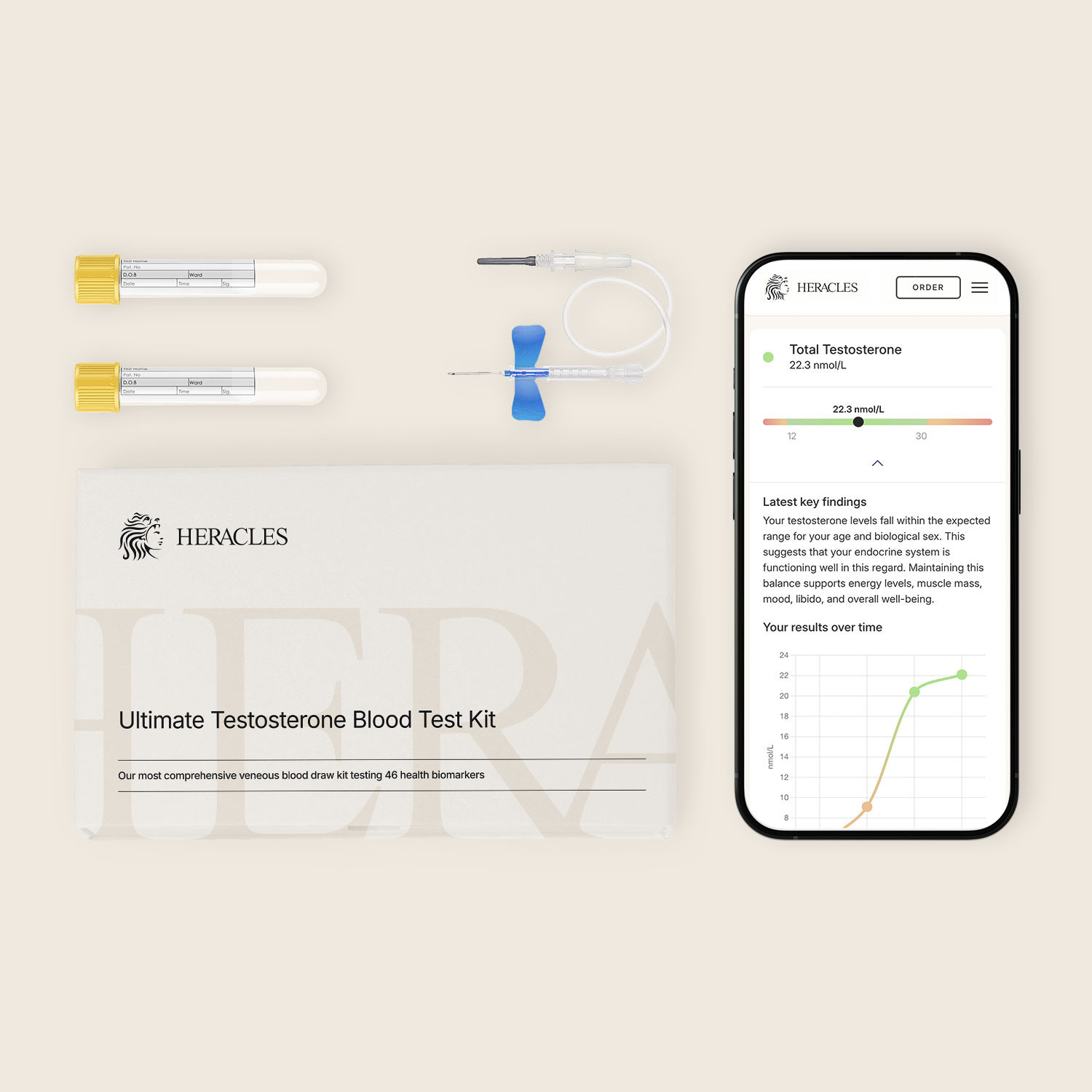
Ultimate Testosterone Venous Blood Test
Confirm your diagnosis or monitor your treatment transformation.
- Follow up low T with root-cause testing
- Track your progress throughout treatment
- Includes specialist TRT doctor consultation
- 46-marker in-depth analysis within 3-5 days
You'll need qualifying results from your initial At-home Testosterone Blood Test to proceed with this test.
Root-cause testing for effective, tailored treatment
This 46-marker venous blood test is the next step to confirm your initial diagnosis. Using key insights including liver, kidney and heart health, your specialist TRT doctor will tailor the most effective treatment plan for you. You can also use this test to monitor your progress throughout treatment.
Testing methods to suit your schedule
Clinic blood draw
Have your blood sample taken by a professional at one of our partner Viva Health Labs’ clinics. With over 170 phlebotomy locations across the UK, VHL offers convenient access to testing services nationwide.
At-home nurse blood draw
A nurse will visit your home or another convenient location of your choice to take your blood sample on a day that works for you.
We partner with Viva Health Labs, giving you access to one of the UK’s most extensive mobile nursing networks for maximum convenience.
How does testing work?

1. Book your blood test
Visit a clinic or have a nurse come to you, at home or another convenient location.
The service will contact you by email or phone to arrange your booking location, date and time.
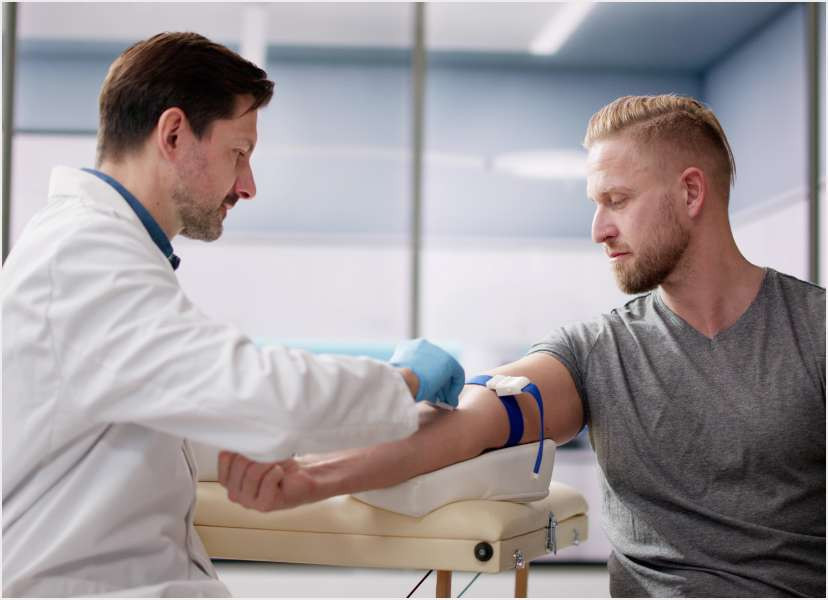
2. Collect your sample
Once your blood sample is collected by the nurse, it will be sent directly to the lab. Your results will be ready in 3–5 days.
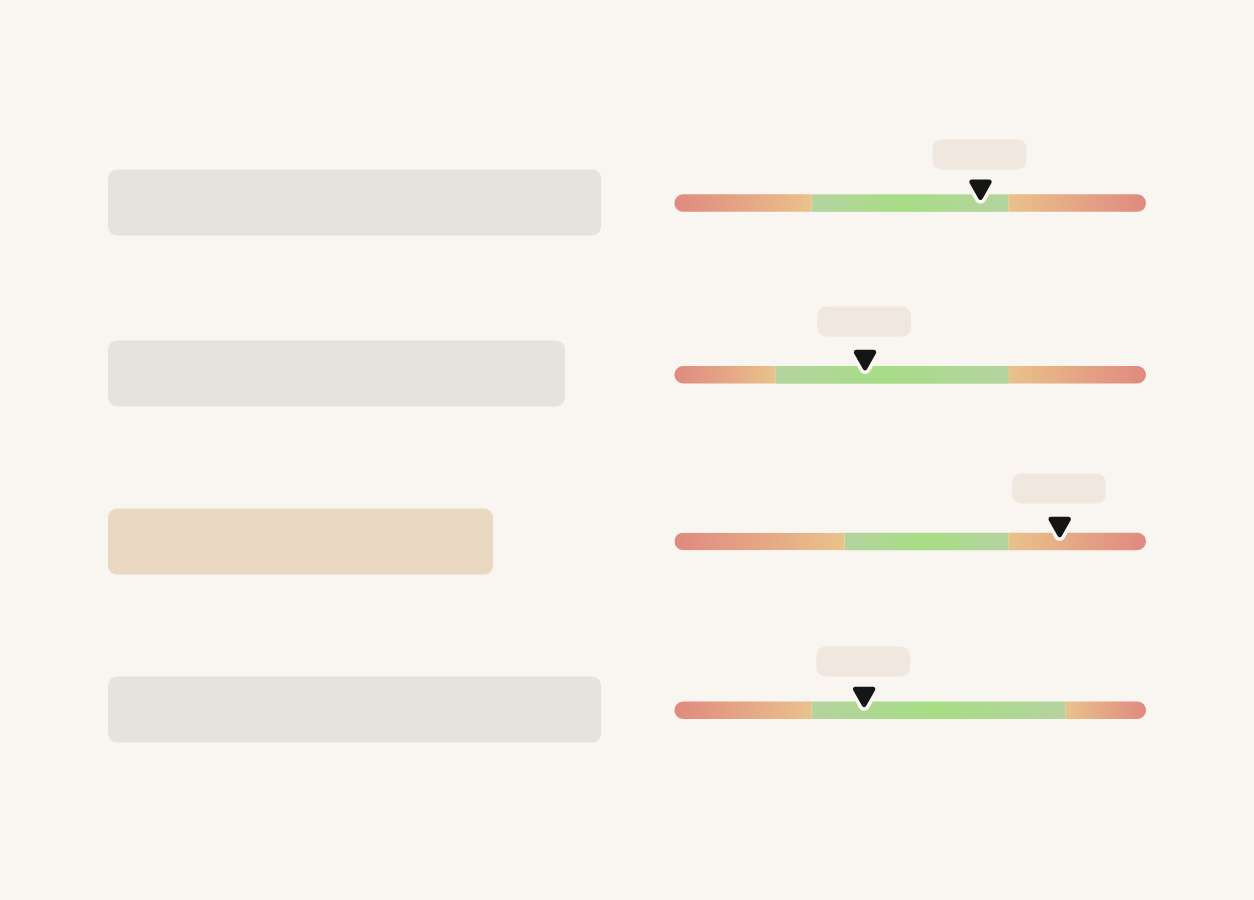
3. View your results
Get access to your results online within days. Our doctors will advise the next steps to assess if low-T treatment is right for you.
Low testosterone explained
What is Low Testosterone?
Testosterone levels decline naturally as you get older but for the first time in medical history, lifestyle factors are catching up with age as a risk factor. If testosterone levels drop too low, it can cause symptoms such as low libido, brain fog, loss of muscle mass, depression and more. The formal name for low T is hypogonadism.
Learn More
What is Testosterone Replacement Therapy (TRT)?
TRT helps to restore healthy testosterone levels for male vitality, body function and longevity. Maintaining them helps to promote muscle mass, sexual function, metabolic health, cognitive function and more.
Learn More
What makes us different?
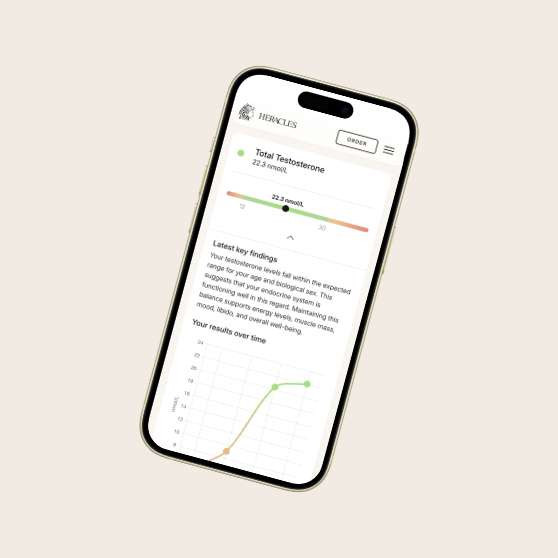
Get access to medical experts like top-tier endocrinologists and root-cause treatment within just a few days. Track your progress for life-changing results.

Take advantage of our lifestyle-forward approach for effects that stick for years to come. Nutrition education and mindset training included.

We don’t do cookie-cutter treatment. Take back control of your hormones, health, and vitality with low T testing that looks at the whole picture.
Meet our in-house experts
Prof. Suks Minhas MD FRCS (Urol)
Co-Founder & Chief Medical Officer, Consultant Urologist and Andrologist
Prof. Tet Yap MA MD FRCS (Urol)
Co-Founder & Chief Longevity Officer, Consultant Andrological Surgeon
Dr. Ian Gallen CBE
Consultant Endocrinologist and Sports Medicine Advisor
Dr. Richie Kirwan PhD RNutr
Senior Lecturer in Nutrition and Exercise Physiology
Paula Allchorne eMBA RN Dip
Urological Nurse and Psychosexual Therapist
Dr. Vinit K. Shah MSc
Consultant in Endocrinology, Diabetes and General Internal Medicine
What results can I expect from TRT?
Rebuilds muscle mass and physical strength.
TRT helps restore lean muscle and physical power, addressing hormonal decline at its source so you feel stronger, more capable, and more confident in everyday life and training.
Supports sexual health and fertility.
By optimising testosterone and related systems, TRT can improve erectile function, reignite libido, and enhance fertility, helping you reconnect with intimacy, confidence, and overall vitality.
Lifts mood and sharpens focus.
Balanced testosterone levels can ease low mood, irritability, and brain fog. Restore mental clarity, motivation, and emotional stability as part of a whole-person approach.
Boosts daily energy and drive.
TRT promotes steady, sustainable energy by supporting the systems that regulate stamina and recovery, helping you fight fatigue and perform at your best, day after day.
Improves metabolic health and body composition.
By reducing visceral fat, improving insulin sensitivity, and supporting healthy cholesterol, TRT strengthens your metabolic foundation. In turn, these benefits lower long-term health risks and promote overall resilience.
From first step to total transformation: How the journey works
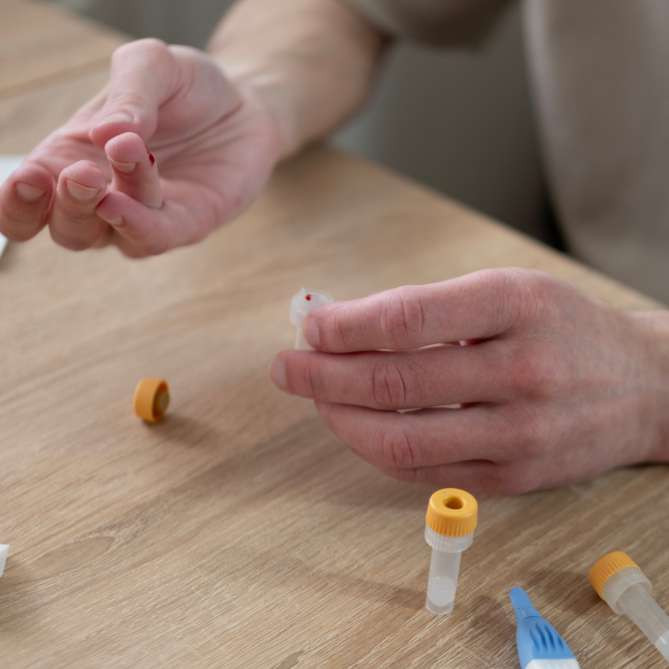
1. Purchase our at-home Testosterone Blood Test.
It all starts with a convenient blood test kit used to assess your testosterone levels at first glance.
- Results for Total Testosterone, Free Testosterone, Sex Hormone Binding Globulin and Albumin
- Simple blood test, done at home
Blood test £68.00 £29.99

2. Speak to a specialist
Talk through your blood results, symptoms, medical background, and further understand treatment choices, pricing, and follow-up care with an expert.
- Private Video Consultation with Qualified TRT Expert
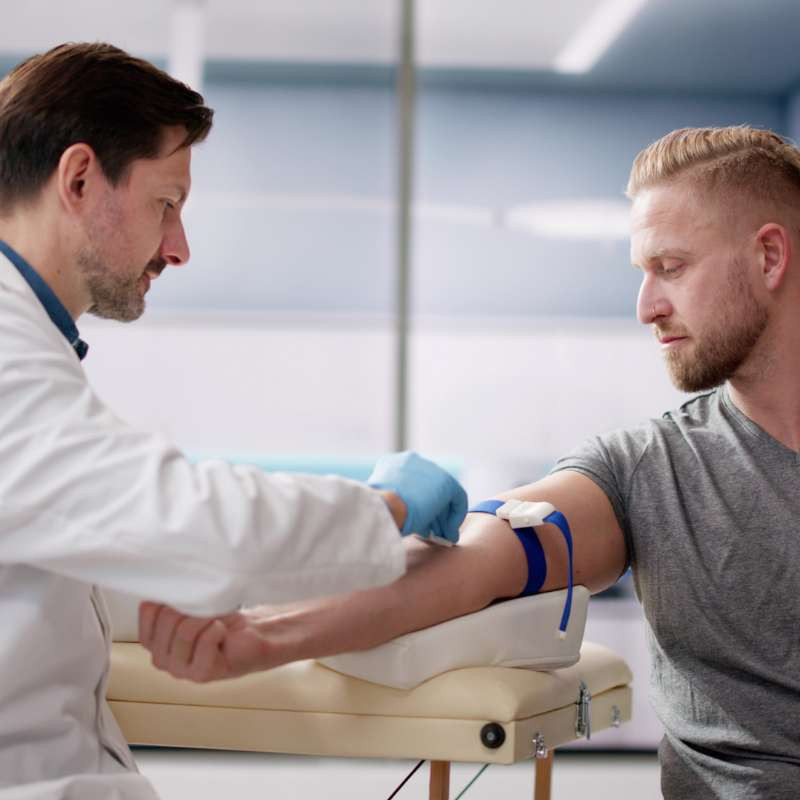
3. In-Depth testosterone testing with a venous blood draw
To validate your initial result, better understand your health, and determine treatment readiness, a comprehensive venous blood draw is required.
- Venous blood collection by a nurse - multiple locations or at-home testing available.
- Comprehensive check for over 46 markers

4. Receive your treatment plan
Consult with a TRT expert to cover your results, symptoms, history, treatment paths, pricing, and follow-up care. A bespoke treatment plan will be designed just for your needs.
- Private Video Consultation with Qualified TRT Expert
- Start personal treatment plan

5. Track and optimise your results
Blood testing at 6 weeks, 3 months, 6 months, and 12 months helps your doctor monitor progress and tailor your plan over time.
- Track your progress
- Manage your treatment plan
Men’s health is broken. We’re here to fix it.

Prof. Suks Minhas
MD FRCS Urol
"As a Consultant Urologist and Andrologist, my mission is to provide world-class, evidence-based care across the full spectrum of men’s health—encompassing sexual function, fertility, low testosterone, hormonal health, and urological wellbeing. Every man deserves access to expert, compassionate care regardless of background, ethnicity, or socioeconomic status. Equitable healthcare is not just an ideal—it is a responsibility."

DR. Ian Gallen
Endocrinologist & Medicine Advisor
"In the UK, we know that men are disproportionately less likely to seek medical help for various reasons, not least when it comes to conditions that may seem to carry a stigma. Heracles wants to break that cycle not just through treatment, but by equipping men with the knowledge and confidence to own their health and to thrive inside out."

Dr. Richie Kirwan
PhD Nutritionist
"Our modern food environment, our activity levels and the way we live our lives simply do not lead us towards health. My goal at Heracles is to help educate and guide men towards healthier food, movement and lifestyle habits that will lead them to the state of optimal health and function that they deserve, and that will help them live a longer, healthier, more fulfilling life."